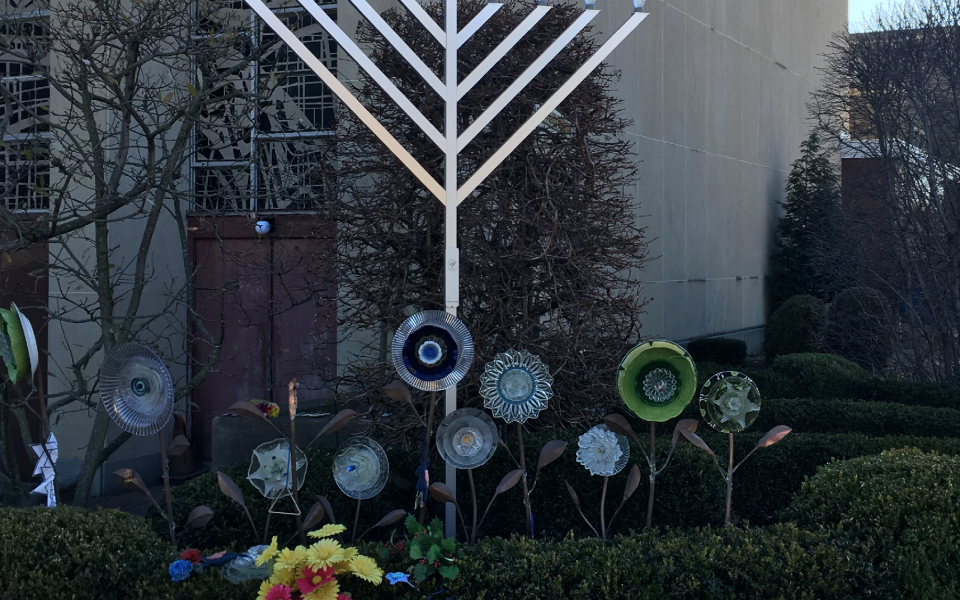
Memorials outside the Tree of Life synagogue in Pittsburgh, five months after the shooting. Photo by 痛 via Wikicommons.
The other night I was watching the PBS Newshour and was especially interested in a segment devoted to violence against houses of worship. The anchor, Judy Woodward, had leaders of the Baptist, Muslim and Jewish communities commenting. Each one had horrible, truly horrible, stories to tell about murders, threats, and desecration that have taken place in their holy places. All of these clergy were veterans of religiously motivated violence perpetrated against their people at prayer! So what were they doing about it? Each one told of reasonable precautions that they have taken. Security checks, off-duty police, surveillance, etc. It all made abundant sense. And yet, for me, something was missing.
After a couple of days, it dawned on me. They had no vocation together. Each response was entirely from the perspective of a single religion.
The Muslim was eloquent about Islamaphobia, the rabbi about anti-semitism, the Baptist about the persecution of Christians. But they never spoke of any action together.
There was no unified voice that demanded that all sacred places and spaces deserve the respect and protection of the larger community! A community where nothing is sacred is in a failed state. A community where the sacred is honored has possibilities for civilization.
But none of this will ever happen unless the religions – all of them – come together somehow. Life in our modern, secular, and dismissive world demands that religions do more than preserve their own siloed traditions. In addition, religions have to find their voice together for the sake of the larger community. Out in the “real world,” the press is trying to shine the light of truth, investigators are trying to expose corruption. People in search of justice are filling the streets all over the world. It is time for religious leaders to do more than just sit quietly on the stage with mayors after some heinous tragedy and mumble a few predictable and vague words.
Religions, together, need to call out every political leader, group, profiteer, extremist, social media executive who feed red meat to the purveyors of violence against religions.
And religions, together, have to examine their own roles in teaching their children to hate people of other religions. Religions together need to help each other reform their attitudes toward Jews, Muslims, Christians, et al. Religions together have to show the world that they have created a culture of peace among themselves. Don’t preach if you haven’t practiced.
Religiously motivated violence is real. This is a moment in time where such violence is happening worldwide at a faster and faster pace against all religions. It is high time that all religions have courage together to address the obvious. It is one thing to talk about security precautions, individually. It is another thing to declare, collectively, to the world that this violence must stop.
URI saw this coming almost a quarter century ago and positioned these words in the middle of its purpose: “… to end religiously motivated violence.” Now is the moment where actions must be wed to these words.
